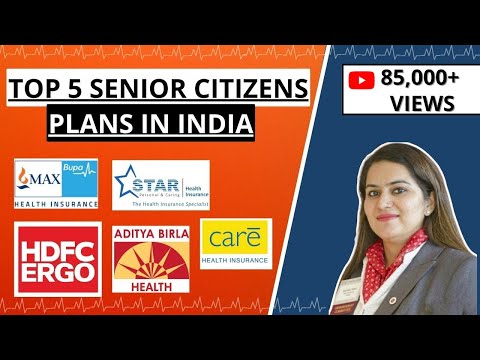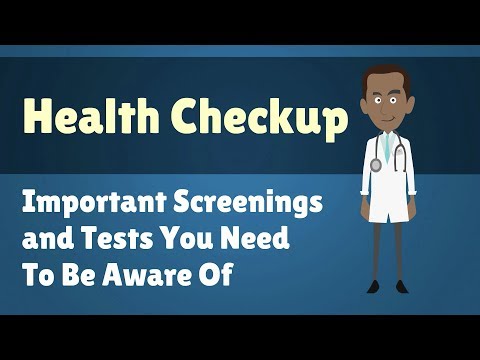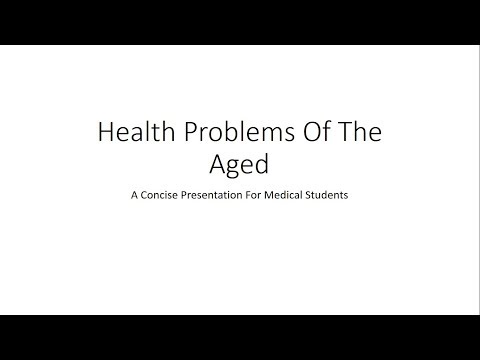Which Health Insurance Program is Designed for the Elderly?
Contents [show]
There are a few different health insurance programs designed specifically for the elderly. Here’s a rundown of a few of the most popular options.
Checkout this video:
Introduction
There are four major types of health insurance programs in the United States:
– private health insurance
– Medicare,
– Medicaid, and
– the Children’s health insurance Program (CHIP).
Medicare is the federal health insurance program for people who are 65 or older, people under 65 with certain disabilities, and people of any age with End-Stage Renal Disease (ESRD) (permanent kidney failure requiring dialysis or a kidney transplant). Medicaid is a state and federal partnership that provides medical assistance to low-income and financially struggling families and individuals. TheChildren’s health insurance Program (CHIP) is a state and federal partnership that provides medical coverage to low-income children who are not eligible for Medicaid.
Private health insurance is typically provided by employers or purchased by individuals. Employer-sponsored plans are the most common type of private health insurance. There are also plans available through professional organizations, unions, and other groups. Individual plans can be purchased directly from some insurers or through the Health Insurance Marketplace
What is Medicare?
Medicare is the federal health insurance program for people who are 65 or older, certain younger people with disabilities, and people with End-Stage Renal Disease (ESRD).
What is Medicaid?
Medicaid is a health insurance program that is jointly funded by the federal government and the states. It is designed to provide medical coverage for low-income individuals and families. Medicaid is the largest source of funding for long-term care in the United States.
Medicaid is available to U.S. citizens and legal residents who meet certain eligibility requirements. In general, you must have a low income and be unable to afford private health insurance. Medicaid coverage is divided into two main categories: mandatory and optional benefits.
Mandatory benefits are those that all states must provide to eligible individuals. These benefits include inpatient and outpatient hospital care, physician services, laboratory and x-ray services, and home health care. Optional benefits are those that states may choose to provide, but are not required to do so. Examples of optional benefits include dental care, prescription drugs, and rehabilitation services.
States must also offer certain long-term care benefits to people who are aged 65 or older, blind, or disabled. These benefits can include nursing home care, home health care, personal care services, and hospice care.
What are the differences between Medicare and Medicaid?
People often confuse Medicare and Medicaid, but there are distinct differences between the two health insurance programs.
Medicare is a federal health insurance program for people 65 and older, as well as those with certain disabilities. Medicaid is a joint federal and state program that helps pay medical costs for low-income people of all ages.
One key difference between the two programs is that Medicare does not have income requirements, while Medicaid does. Another difference is that Medicare is mostly run by the federal government, while Medicaid is jointly run by the federal government and individual states. This can result in differences in coverage and eligibility from state to state.
Generally speaking, Medicare covers more services than Medicaid, but Medicaid has lower out-of-pocket costs for enrollees. Both programs have annual open enrollment periods during which people can sign up or make changes to their coverage.
Who is eligible for Medicare?
Medicare is a federal health insurance program for people 65 years of age or older, people under 65 years of age with certain disabilities, and people of any age with End-Stage Renal Disease (ESRD). To learn more about the different parts of Medicare, visit www.medicare.gov or call 1-800-MEDICARE (1-800-633-4227).
Who is eligible for Medicaid?
Who is eligible for Medicaid?
-People who are aged 65 or over
-People who are blind or have a disability
-People who are pregnant
-People who are under the age of 21
How do I sign up for Medicare?
Medicare is a federal health insurance program designed for people who are 65 or older, certain younger people with disabilities, and people with End-Stage Renal Disease (ESRD).
There are four parts to Medicare:
– Part A covers inpatient hospital stays, skilled nursing facility, hospice, and home health care.
– Part B covers outpatient services such as doctor visits, preventive services, x-rays and lab tests, and some vaccinations and screenings.
– Part C is also known as Medicare Advantage and it covers the benefits of Parts A and B, often with extra benefits such as dental, vision, and prescription drug coverage.
– Part D is the prescription drug benefit which helps cover the cost of prescription drugs.
If you are eligible for Medicare, you can sign up online at https://www.medicare.gov/ or by calling 1-800-MEDICARE (1-800-633-4227). TTY users can call 1-877-486-2048. You can also sign up in person at your local Social Security office or by contacting your state’s health insurance assistance program.
If you already have health insurance through an employer or union, you may not need to sign up for Medicare right away. In this case, you should contact your benefits administrator to find out how your current coverage works with Medicare.
How do I sign up for Medicaid?
If you are a low-income senior citizen, you may be eligible for Medicaid. Medicaid is a government-sponsored health insurance program that helps pay for medical care for those who cannot afford it. To sign up for Medicaid, you will need to contact your state’s Medicaid office.
What are the benefits of Medicare?
The Medicare program is a health insurance program designed for the elderly. It provides benefits for hospitalization, medical care, and prescription drugs. There are four parts to Medicare: Part A, Part B, Part C, and Part D.
What are the benefits of Medicaid?
Medicaid is a government health insurance program that is designed for low-income Americans, including the elderly. Medicaid provides a wide range of benefits, including medical and long-term care coverage. Medicaid is also one of the largest payers of nursing home care in the United States.






